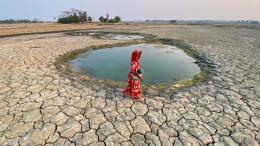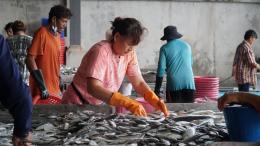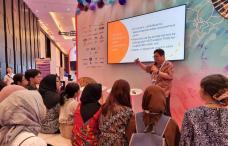On 25 March 2025, UNU-IAS organized an online event to commemorate World Water Day. It discussed challenges and potential solutions related to water security in the context of climate change adaptation.
Opening the event, Shinobu Yume Yamaguchi (Director, UNU-IAS) highlighted the central role of water in sustainable development and the pressing need to address global water security challenges.
Yasushi Katsuma (Academic Programme Advisor, UNU-IAS) noted that “Glacier Preservation” was the 2025 theme of World Water Day, and World Day for Glaciers was celebrated for the first time on 21 March.
Taikan Oki (Professor, The University of Tokyo; former UNU Senior Vice-Rector) delivered a keynote speech on climatic risk boundaries and adaptation to extreme temperatures and precipitation. He emphasized that smooth exchange of knowledge and technology through global partnerships was critical to prepare for future challenges.
Mukand Singh Babel (Professor, Asian Institute of Technology) discussed science for a transformative agenda, highlighting the importance of integrated solutions with water at the heart of policies, planning and investments. He called for adopting nexus approaches and mainstreaming water in other sectoral policies.
A student session moderated by Kamille Emilie Hüttel Rasmussen (PhD student, UNU-IAS) explored water security issues in Ghana, Indonesia, Sri Lanka and Tunisia, highlighting challenges such as uneven distribution, lack of access, pollution, inadequate infrastructure and climate change.
In closing, Nidhi Nagabhatla (Chair, UNU Water Network; Senior Research Fellow, UNU-CRIS) introduced the UNU Water Network and its work on addressing water security issues focusing on policy guidance, natural resources management and new technologies.
The event was organized by UNU-IAS in partnership with the Institute of Future Initiatives (IFI) at the University of Tokyo and UNU Water Network.



